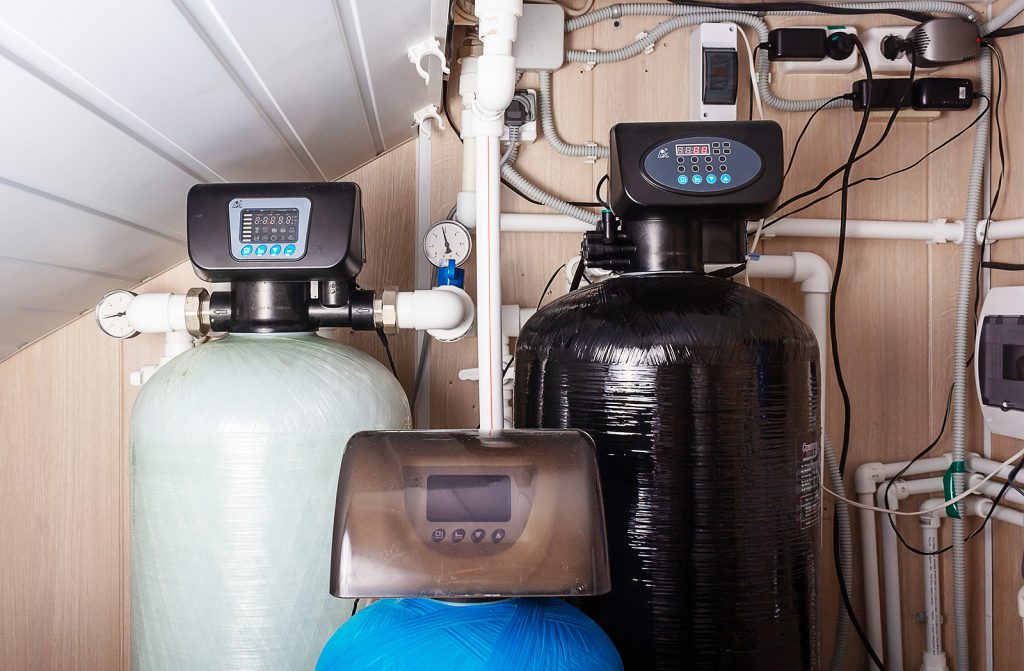Regular water softener maintenance extends equipment life while maximizing performance and efficiency throughout your home. These important appliances remove minerals that cause scale buildup in pipes and fixtures, but they require periodic attention to continue working properly. With a few simple maintenance procedures performed consistently, your water softener can provide years of trouble-free service while protecting your plumbing system and appliances. Read on to discover practical maintenance steps that keep your water softener operating at peak efficiency.

Salt Management Matters
Salt level management ranks as the most frequent maintenance task for water softeners. Checking salt levels monthly helps prevent salt bridges and mushes that disrupt proper operation. Salt bridges occur when hardened salt crusts form above water in the brine tank, creating empty spaces that prevent proper salt dissolution. Breaking these crusts gently restores normal operation in many cases.
The type of salt used affects maintenance requirements significantly. Evaporated salt pellets offer higher purity and create less tank residue compared to rock salt alternatives. While slightly pricier initially, premium salts reduce cleaning frequency and minimize brine tank buildup over time. For extremely hard water areas, consider high-purity salt formulations with added cleaners that help maintain internal components.
Tank Cleaning Tips
Periodic brine tank cleaning removes accumulated sediment and residue that affects regeneration cycles. Emptying the tank annually allows removal of undissolved salt and mineral residue that collects at the bottom. This simple procedure prevents efficiency-robbing buildups while extending component life.
The resin bed inside the mineral tank benefits from occasional cleaning to remove iron and organic contaminants that reduce softening capacity. Iron-removal products designed for water softeners help restore performance when added during regeneration cycles. For areas with particularly challenging water conditions, resin bed cleaners applied quarterly help maintain peak softening efficiency.
Cycle Control Wisdom
Modern water softeners use electronic controllers to manage regeneration cycles based on water usage patterns. Verifying these settings annually helps maintain proper operation as household water consumption changes over time. Adjusting regeneration frequency to match actual water usage prevents excessive salt consumption while maintaining consistent soft water quality.
Power outages can disrupt controller settings, causing inefficient operation. Checking these settings after electrical disruptions helps maintain proper cycles. Many current models include battery backup features that preserve programming during brief outages, but extended power losses may still require reprogramming.
Water Flow Watch
Water flow through softener systems affects overall performance significantly. Checking inlet screens annually prevents flow restrictions from debris accumulation. These small screens protect internal valves but can become clogged over time, reducing water flow through the system and decreasing effective softening capacity.
Bypass valves allow water to flow around softeners during maintenance periods. Exercising these valves yearly prevents sticking or seizure that might complicate future service requirements. Proper valve operation also provides an emergency option during unexpected system issues.
Pressure Check Importance
Water pressure affects softener operation substantially. Annual pressure checks using simple gauges help identify developing issues before they damage components or reduce performance. Most residential softeners operate best between 40-70 PSI, with pressure regulators required for homes exceeding these ranges.
Excessive pressure stresses internal components and can cause premature failure of control valves and seals. Conversely, insufficient pressure may prevent proper regeneration or reduce flow rates through the system. Professional evaluation helps determine optimal pressure settings for particular installations.
Expert Eye Benefits
While many maintenance tasks remain suitable for homeowners, professional inspection every 2-3 years helps identify developing issues before they cause significant problems. These inspections typically include resin bed evaluation, valve assessment, and comprehensive testing of regeneration cycles. Professional service also provides opportunities for system updates that may improve efficiency or performance.
Modern diagnostic tools allow professionals to evaluate internal components without extensive disassembly, making preventive maintenance faster and less intrusive than in previous generations of equipment. This approach identifies wearing parts before failure occurs, preventing unexpected service interruptions.
Metairie, LA Softener Support
Residents in the Metairie, LA area can count on Bienvenu Brothers for comprehensive water softener maintenance, repair, and installation services. Our professional plumbers provide expert assistance with all water quality improvement systems throughout Jefferson Parish and surrounding communities. For water softener maintenance that extends equipment life while maximizing performance, call (504) 835-7783 today to schedule a professional evaluation of your water treatment system.

